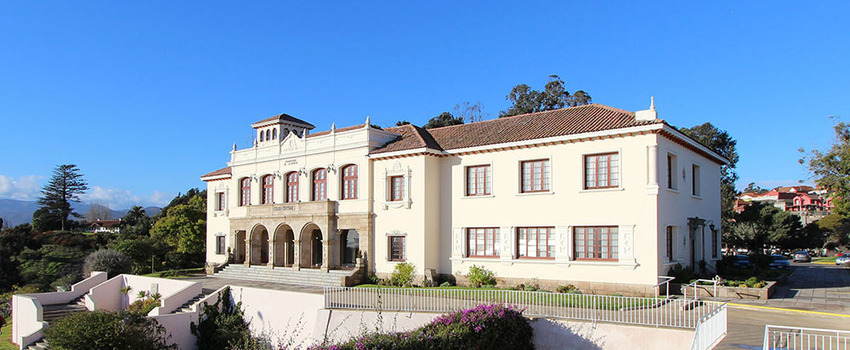- News
Official Communiqué No. 8 of the Rector's Office on the proposal for an ethical minimum salary at ULS

OFFICIAL COMMUNICATION N°8 OF THE RECTORY
La Serena, Monday, November 11, 2019.
Dear ULS Community:
The heartfelt demand of Chilean society for greater equity and social justice is, after 24 days of citizen mobilizations, an unavoidable call that as the University of La Serena we must and wish to heed.
During my presidency, we have established job stability, investments in quality and a balanced budget as an institutional policy. In practice, this has meant, mainly, a prioritization of the item of remuneration and investments for the improvement of equipment and infrastructure for the teaching and research service.
This is how, for almost a decade, the amount of the remuneration readjustment has been carried out based on the readjustment of the public sector - which has not been a constant in all the universities of the State -, even in a complex financing scenario, entailing important adjustments for adequate budget balance.
We have achieved this thanks to the valuable support of the Internal Triestamental Commission of the Academic Council – made up of representatives of both academic and non-academic civil servant associations, together with the Student Federation – who, in light of all the information on income and probable expenditures, propose an approximation of the institutional budget to the Academic Council, a fact that constitutes a unique modality of work in the university system.
The current scenario in our country invites us to strengthen the ways in which we can contribute to equity. Hence, with special emphasis in recent days, together with the management team and in my capacity as Rector, we have analyzed the salary structure of our university, requesting from the technical teams, background information that would allow me to hold a well-founded opinion regarding the possibility of making an extra institutional effort to contribute to equity and, especially, improve the salary conditions of those who are not at an ethical minimum salary level.
Given the background – and taking into account both the need to contribute to equity and social justice as well as the capacities derived from our financial and economic structure – I have decided to enter into discussion before the collegiate bodies, the proposal for salary improvement for civil servants. and officials who are below the line of $500.000 gross per month, establishing this new amount as the minimum and ethical remuneration at the University of La Serena, as of January 01, 2020.
This proposal to improve remuneration is without prejudice to the bonuses that the university has specifically established as a complement to remuneration, and which are summarized as follows:
- For non-academic officials, in 2019: In January, $104.970; in March, $69.986; in September, $69.986; and in December, $69.648 special bonus for gross income less than $1.500.000.
- For academics with more than 12 hours of classes and income less than $1.500.000, special one-time bonus of $69.648.
- In the case of hourly academics with contract appointments in the previous two semesters and who do not have a full-time appointment (JC): they receive, in January and February, a bonus per month equivalent to 100% of gross remuneration monthly average obtained in the previous year, in a semester of normal duration.
This measure of the minimum ethical salary will be proposed before the Academic Council in its next session, and then continue the processing before the Board of Directors, if so determined. Although its eventual approval and implementation will impact the financial flows of the institution, it is a sign of equity that, I maintain, we cannot continue to postpone.
I hope that this proposal to improve the income of those who are at the lowest remuneration levels is a first measure of others that, eventually, as long as resources allow, could be adopted in order to achieve a remuneration structure that fairly articulates the need to reduce salary gaps and maintain the financial health of the institution.
By the way, like you, I am convinced that in these matters there is still much to do; However, I must also be extremely responsible with institutional sustainability and financial balance, since, as is known, income depends largely on undergraduate fees, gratuity and years of institutional and career accreditation.
Finally, as a university we call on our community to participate in all democratic bodies and fulfill the associated duties, promoting dialogue with all actors, in order to chart a path towards development centered on people and their well-being. In this sense, we call on the government and parliamentarians to listen to the proposals that seek to build a more just and equitable society.
Greetings to you cordially,
Dr. Nibaldo Aviles Pizarro
Rector
